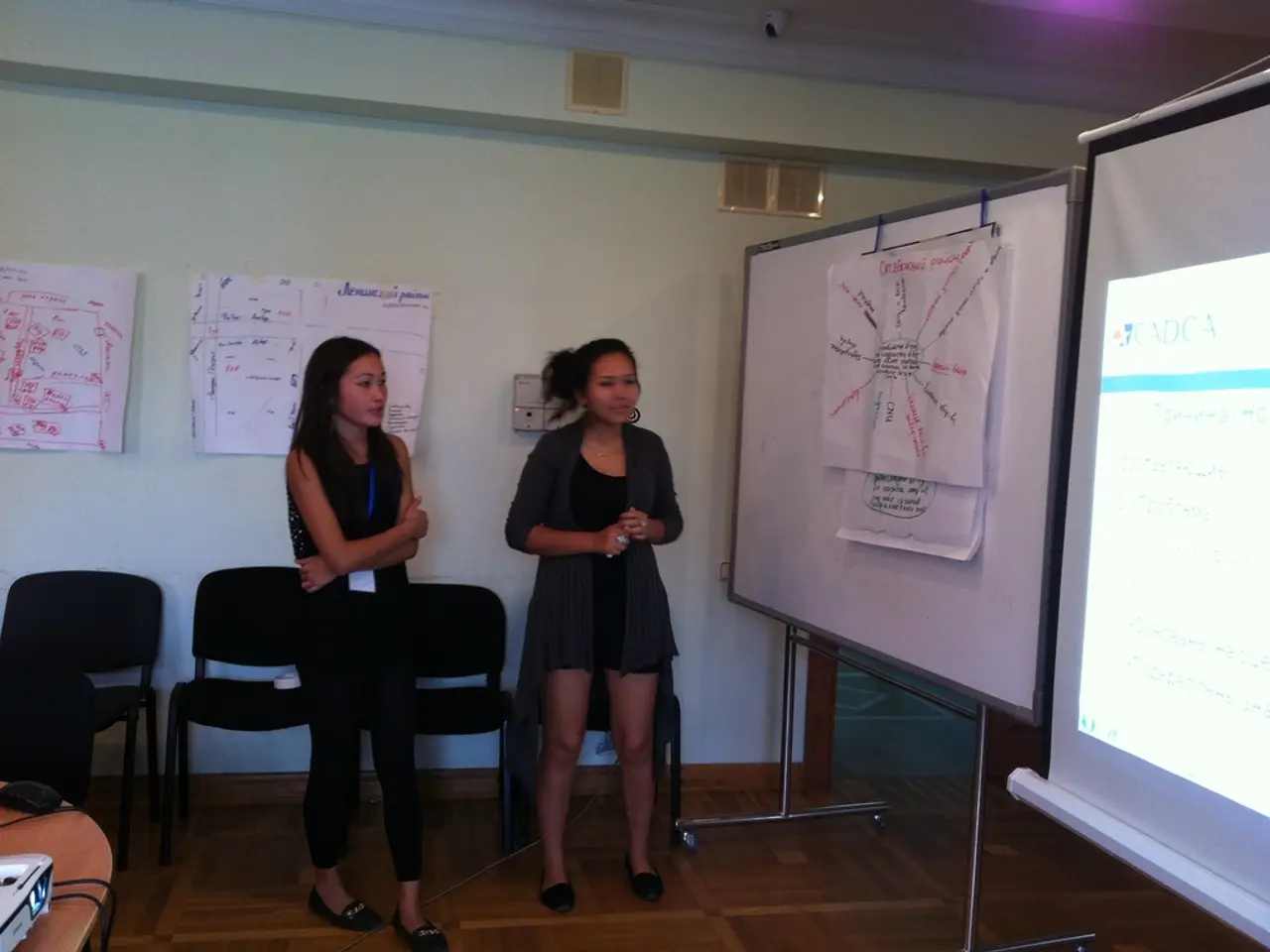Avoiding Medication Waste in Landfills
Aline Gruber, a 25-year-old Innovation Manager at AOK Rhineland/Hamburg, is developing a digital business model as part of her master's thesis that aims to make a significant impact on healthcare waste reduction. Inspired by the 'Too Good To Go' model, which reduces food waste, Gruber's idea is to create a platform that connects pharmacies, hospitals, and other healthcare facilities, focusing on reducing prescription medication waste.
Professor Dr. Gerald Lux, Gruber's supervisor, is convinced of the potential of her work in the field of health and care. He describes her idea as fantastic, implying significant potential for contributing to the digital revolution in healthcare.
Gruber's digital business model could potentially prevent the monthly waste of prescription medications by enabling better medication adherence, reducing duplicate and contraindicated prescriptions, facilitating better clinical oversight, and encouraging rational drug selection.
The firefighter told her about disposing of expiring prescription medications as part of his work, which sparked Gruber's interest in finding a solution to this issue. The exchange aims to make use of short-term usable medications in hospital pharmacies, potentially expanding the possibilities for progress in health and care.
Digital prescription platforms, such as the one Gruber is developing, can integrate with price transparency tools, electronic prescribing, and telehealth. These platforms have the potential to reduce healthcare waste by optimizing medication choice, adherence, and safety. However, concerns remain regarding telehealth-based prescriptions fueled by pharmaceutical companies that may promote high prescription rates of specific branded medications, potentially increasing waste if medications are not optimally prescribed or used.
Blue Shield of California recently launched a digital experience that notifies members when a doctor initiates an e-prescription and allows patients to view drug prices, compare alternatives, and seek lower-cost options—all through a mobile app dashboard. This improves transparency and patient engagement, potentially reducing waste by steering patients to the most cost-effective medications that they are more likely to fill and use.
Telehealth platforms linked to pharmaceutical companies have rapidly expanded, issuing prescriptions with high frequency, sometimes with cursory provider interactions. These platforms typically promote manufacturer-specific drugs, which raises safety and ethical questions but also affects how prescriptions are consumed and possibly wasted.
Electronic prescription systems are being widely adopted with efforts to share prescription and dispensing information across healthcare institutions to avoid duplication and contraindications, contributing to safer and more efficient medication use. Regulatory frameworks for prescribing controlled substances via telemedicine are evolving to balance access and diversion prevention, improving the appropriateness of prescriptions transmitted digitally.
Gruber's digital business model, if implemented, could open access to other countries for surplus prescription medications, making a significant contribution to global healthcare waste reduction efforts. The implementation of Aline Gruber's idea is yet to be determined, but with the support and encouragement of Professor Dr. Gerald Lux, it is a promising development in the field of digital health.
- Aline Gruber's digital business model, focused on reducing prescription medication waste, has the potential to impact the digital revolution in health and care, as described by her supervisor, Professor Dr. Gerald Lux.
- With better medication adherence, reduction of duplicate and contraindicated prescriptions, improved clinical oversight, and rational drug selection, Gruber's platform could prevent the monthly waste of prescription medications.
- The integration of digital prescription platforms with price transparency tools, electronic prescribing, and telehealth has the potential to reduce healthcare waste by optimizing medication choice, adherence, and safety.
- If implemented, Gruber's digital business model could open access to other countries for surplus prescription medications, significantly contributing to global healthcare waste reduction efforts.




